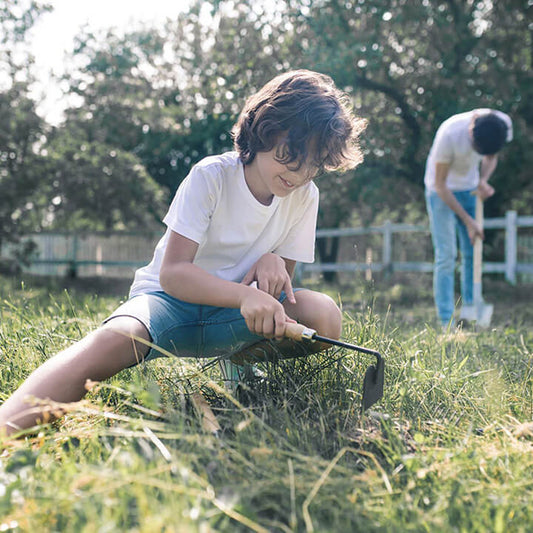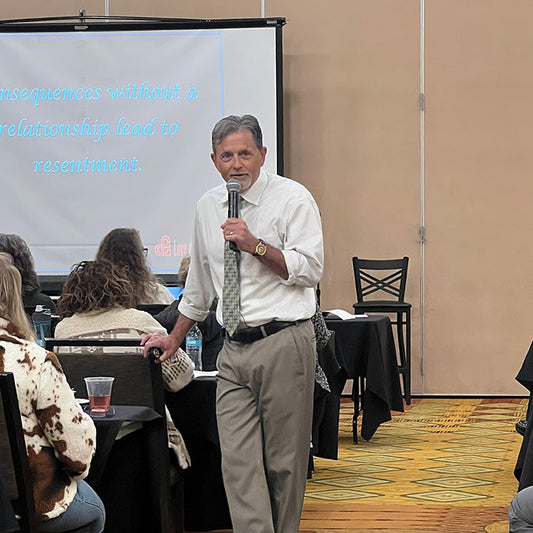In our Blog on April 16, 2021, we focused on the first three of the Seven Steppingstones of Trust for stepparents. This week we will finish with Steppingstones 4-7. As we mentioned in the first blog, these steppingstones are presented to help stepparents build trust with their stepchildren, but they can serve equally well with parents as they strive to build trust with their own kids.
Steppingstone 4: Share control within limits.
When control is taken from people, some will rebel, and some will perform subtle sabotage. Both strategies are attempts to achieve the same goal, restoring a sense of control. Stepchildren experience a dizzying array of changes, over which they don’t have any semblance of control. Understandingly, they’re often bankrupt of this critical commodity and they are more than willing to fight to regain it. When they encounter a stepparent with their own control issues, sparks will fly.
The Love and Logic consultant approach to parenting and stepparenting allows kids to learn to become respectful, responsible, and resilient. This is done by setting healthy limits only over matters that we can enforce. We do this by:
- Providing plenty of choices within these limits.
- Hoping and praying that the kids will make plenty of poor choices/mistakes when the “price tags” of the consequences are still small.
- Allowing these consequences to do the teaching, while we provide great empathy instead of trying to lecture kids into becoming responsible.
- Guiding children to own and solve their problems, rather than rescuing or telling them what to do.
Steppingstone 5: Provide sincere empathy.
Trusting relationships are forged in the furnace of affliction. Huh? What’s that supposed to mean?
One of the most powerful strategies known to humankind involves letting our kids know that we are going to do “something.” This allows us time to calm down and make better decisions before we make any promises. This also allows our kids to grapple with what the eventual “something” might end up being.
It’s through these rocky times that trust is most strongly cemented. Every time our kids make a poor decision, we have an opportunity to demonstrate our love and build trust by providing a healthy dose of sincere empathy
Steppingstone 6: Make them part of the team.
Sometimes parents feel guilty for expecting their kids to help around the house. “After all,” one parent commented to me, “they have to go back and forth from their dad’s, and I don’t get to see them all of the time.”
Parents feel guilty until they learn how important it is for kids to feel needed, to know that they are important and loved members of the family team. When this need goes unmet, feelings of entitlement and resentment soon emerge, and the kids fail to experience the true joy of serving others. Yes, it is better to give than to receive. Sadly, fewer and fewer young people are learning this, and therefore they spend their lives feeling emptier and emptier as they attempt to fill themselves up.
After realizing this, some parents feel guilty about failing to expect enough out of their kids. There are few things more detrimental than allowing guilt to rule our stepparenting (or parenting). Give yourself and the kids a break. Relate to them based on the here and now, not on what happened in the past.
Steppingstone 7: Break bread daily.
Families who regularly sit around the table and enjoy meals consisting of this one essential nutrient create far happier and more responsible kids. Their children display less delinquency, are less likely to abuse alcohol or drugs, show greater academic achievement, and tend to have fewer problems with obesity or other eating disorders.
What is the one essential nutrient? Love. While researchers have yet to delineate the scientific reasons for this, common sense tells us that folks bond over food. When families bond, nothing but great stuff happens.
Every Relationship is Different
At one of our past conferences, I asked if anyone who had grown up in a stepfamily would be willing to share some of their stories with me. I was pleased at how many took me up on the offer. As I spoke with each, I was astonished by how many reported having wonderful experiences as stepchildren. In fact, most of them reported that they still had very good relationships with their stepparents.
Some of the relationships they described were very, very warm. Others were quite good, yet more businesslike.
The type of healthy relationship you develop with your stepchildren will fall somewhere between these two ends of the continuum. Factors, such as the age of the kids, their unique personalities, and their relationships with the other adults in their lives will all combine in amazingly complex ways to shape the specific outcome. Most importantly, will be the extent to which you keep your balance while navigating each of the Seven Steppingstones of Trust.
Thanks for reading!
























































